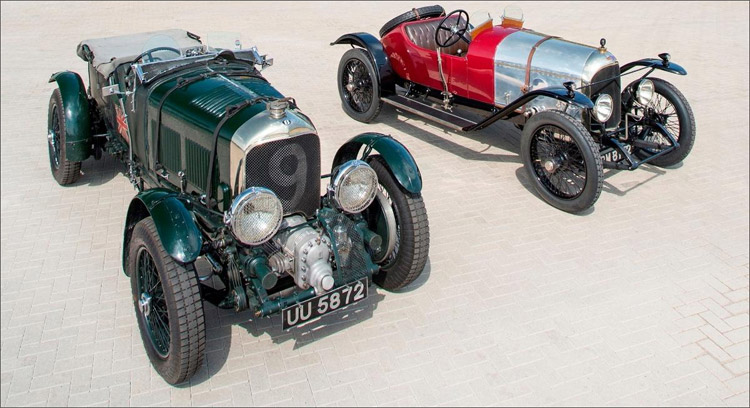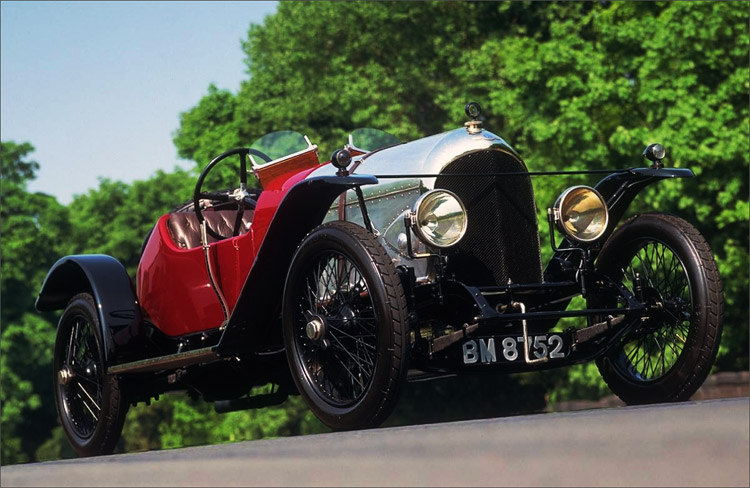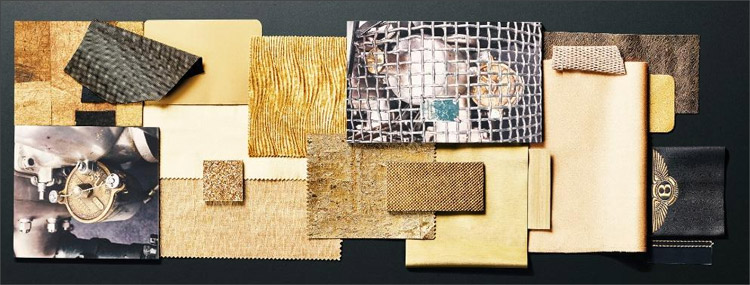2019 Bentley models to boast unique anniversary features
Elliot Wood - Auto Classics, August 2018
Next year will be Bentley's 100th, and every new owner can celebrate the marque's centenary with their own car.
Bentley is celebrating its 100th year by introducing a special 'Centenary Specification' for all models built in its Crewe factory during 2019, which will include exclusive badges, broidery, colours and keys.
Inspired by the previous 99 years of the marque's cars for the design of the centenary specification, cars will now come with centenary badging, distinctive seat embroidery with Centenary Gold headrest logos and stitching, unique treadplates and other special details that will identify each car as part of the celebrations, and enhancing their collector status in the process.

Unique Centenary Gold front and rear badging will match the special wheel centre badges and treadplates with a ‘1919-2019’ display. The steering wheel badge, key fob and gear selector will all feature a similar use of the celebratory design.
The metalwork found on vintage Bentleys, such as the 1919 EXP 2 and 1929 ‘Birkin’ Blower is the inspiration of the Centenary Gold colour, which Bentley describes as 'a refined metallic gold'. The colour has been specifically crafted to distribute light in a similar way to jewellery.

Born in 1888, founder W.O. Bentley grew up with an interest in engineering. He eventually started building his own cars, so as to satisfy his expectations as a driver, and Bentley Motors was established in 1919. Two years later the first production model was delivered Noel van Raalte, who spent £1,050 (approximately £48,800 in today's money) on the car. The car carried Bentley’s hallmark radiator casing and Flying 'B' insignia.

The Bentley models of the 1920s emerged due to their motorsport success at Brooklands, Indianapolis and – most famously – Le Mans. The legendary achievements of the 'Bentley Boys' won the Le Mans 24 Hours five times.
Production cars were first made in Cricklewood, North London, before manufacturing switched to the Midlands town of Crewe during World War Two. Rolls Royce's manufacturing division did the same, so as not to be stopped by the German bombardment of London.
Fast forward half a century and the brand had succumbed to the Germans by becoming a part of Volkswagen, after previously being part-owned by Vickers. During that time the company has produced some of the most desirable Grand Tourers, combing luxury and performance, and has recently expanded into SUVs.

